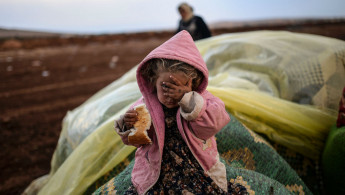A generation of Syrian children 'lost to trauma'
Interviews with more than 450 children showed a high-level of psychological stress, with many suffering from frequent bedwetting or developing speech impediments.
At least three million children are estimated to be living in Syria's war zones, facing ongoing bombing and shelling as the conflict heads into its seventh year.
Two-thirds of those interviewed by the aid organisation have lost a loved one or had their house bombed or shelled, or suffered war-related injuries themselves.
"After six years of war, we are at a tipping point," said the report entitled Invisible Wounds on the war's impact on children's mental health.
"The risk of a broken generation, lost to trauma and extreme stress, has never been greater," it said.
A staggering 84 percent listed bombing and shelling as the number one cause of stress in children's daily lives.
About 48 percent of adults reported that children had lost the ability to speak or developed speech impediments since the start of the war.
Some 81 percent of children have become more aggressive while 71 percent suffer from frequent bedwetting, according to the research.
Half of those interviewed said domestic abuse was on the rise and one in four children said they don't have a place to go or someone to talk to when they are scared, sad or upset.
Sonia Khush, Save the Children's Syria director, cited instances of attempted suicide and self-harm.
In the besieged town of Madaya, six teenagers - the youngest a 12-year-old girl - have attempted suicide in recent months, said Khush.
The report quoted a teacher in Madaya who said children there were "psychologically crushed and tired".
"They draw images of children being butchered in the war, or tanks, or the siege and the lack of food."
"Children wish they were dead and that they would go to heaven to be warm and eat and play," said Hala, another teacher in Madaya.



